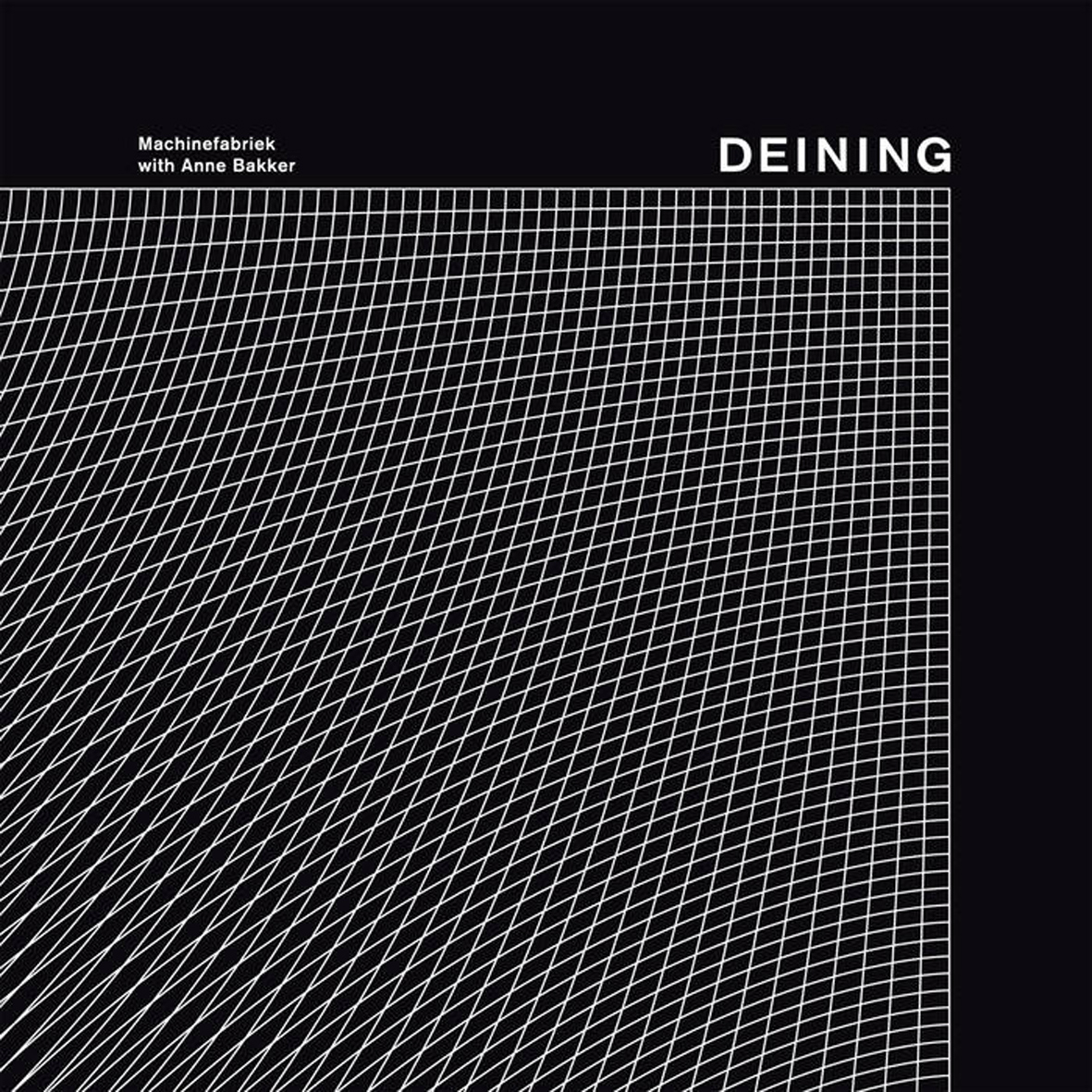 This collaborative EP with violinist Anne Bakker is a unique entry in Rutger Zuyderveldt’s vast discography, as it is a 26-minute tour de force of nerve-jangling tension and sliding dissonance.  Deining (translating as "heave" or "commotion") definitely falls quite unambiguously and unapologetically into the "this is art, not entertainment" category.  That probably will make it a hard sell for most people (Rutger himself understatedly observed that the piece is "a tad bitter"), but it is nevertheless quite a fascinating piece for those of us with an appreciation (and high tolerance) for shifting, uncomfortably close harmonies (there are a lot of those here).  Also, it is very hard not to admire the beautiful symmetry and simplicity of this uncompromising experiment.
This collaborative EP with violinist Anne Bakker is a unique entry in Rutger Zuyderveldt’s vast discography, as it is a 26-minute tour de force of nerve-jangling tension and sliding dissonance.  Deining (translating as "heave" or "commotion") definitely falls quite unambiguously and unapologetically into the "this is art, not entertainment" category.  That probably will make it a hard sell for most people (Rutger himself understatedly observed that the piece is "a tad bitter"), but it is nevertheless quite a fascinating piece for those of us with an appreciation (and high tolerance) for shifting, uncomfortably close harmonies (there are a lot of those here).  Also, it is very hard not to admire the beautiful symmetry and simplicity of this uncompromising experiment.
When I first heard Deining, I had not yet read anything about it and was somewhat mystified by the seemingly minimal role played by Machinefabriek.  Aside from the subtle pulse of a sine wave, the piece seems to be entirely about Bakker and her violin.  Which it definitely is, in one way.  In a much more significant way, however, this is very much Rutger Zuyderveldt's experiment, as his concept and behind-the-scenes machinations are why Deining is such a singular entity rather than any kind of expected or "normal" collaboration.  The project is rooted in a very simple idea: Zuyderveldt asked Bakker to slowly slide from the lowest note to the highest note for five minutes on each string of her violin.  She gamely obliged and also threw in some corresponding downward slides as a bonus.  Structurally, Deining is little more than five minutes of Bakker slowly sliding up the lowest string of her violin, a brief resolution into a pleasant drone, Bakker slowly sliding up the second lowest string of her violin, another brief resolution, and so on.  There is not any larger compositional arc other than a series of four increasingly high-pitched, uncomfortable, and painfully slow slides up the neck of a violin interspersed with a few welcome oases of calm.
While such a nakedly segmented, time-based, and purposely restricted composition does not yield much in the way of a cumulative reward, there is quite a lot of pleasure to be found in the details (if "pleasure" is the right word).  Zuyderveldt did quite an expert and impressively nuanced job of layering multiple tracks together to evoke a constantly escalating intensity and pitch even while other tracks are sliding downwards.  Also, the two opposing sliding pitches, coupled with the underlying sine wave tone, yield a vibrant and constantly shifting world of complex harmonies and oscillations.  As an experiment in sustaining simmering, squirm-inducing tension for an uncomfortable period of time, Deining is quite an unqualified success.  Also, the structure of escalating, sharpening plateaus of unease is a clever and effective way of presenting such an (almost) unrelentingly dissonant theme.
There are also few other tricks and enhancements happening in the background of Deining, like the fact that Rutger’s sine waves manually follow the pitch of the violin, then freeze into a drone when they reach the same pitch (always at the midpoint of a section).  The piece is not nearly as aggressively minimal as it initially seems.  I also enjoyed the transitional moments when the warmly beautiful passages of interstitial calm suddenly blossom into a fresh surge of quavering upward glissando.  The real show, however, remains the rich and wonderfully textural plunge into almost half an hour of shifting dissonance and close harmonies.  All of the conceptual and structural underpinnings are neat, but they are primarily intellectual pleasures that pale beside the far more visceral and immediate power of the piece itself.  There is certainly no shortage of harsh music in the world, but it truly rare for anyone to achieve that end through harmony alone and to do it so immersively and so effectively (especially outside the realm of modern classical music).  Obviously, a release like Deining is fundamentally destined to appeal to a very limited audience, but it is hard to imagine any way in which Rutger could have achieved his objective any more perfectly than he did here.  Deining fills a niche that almost never gets explored and does it masterfully.
 
Read More

